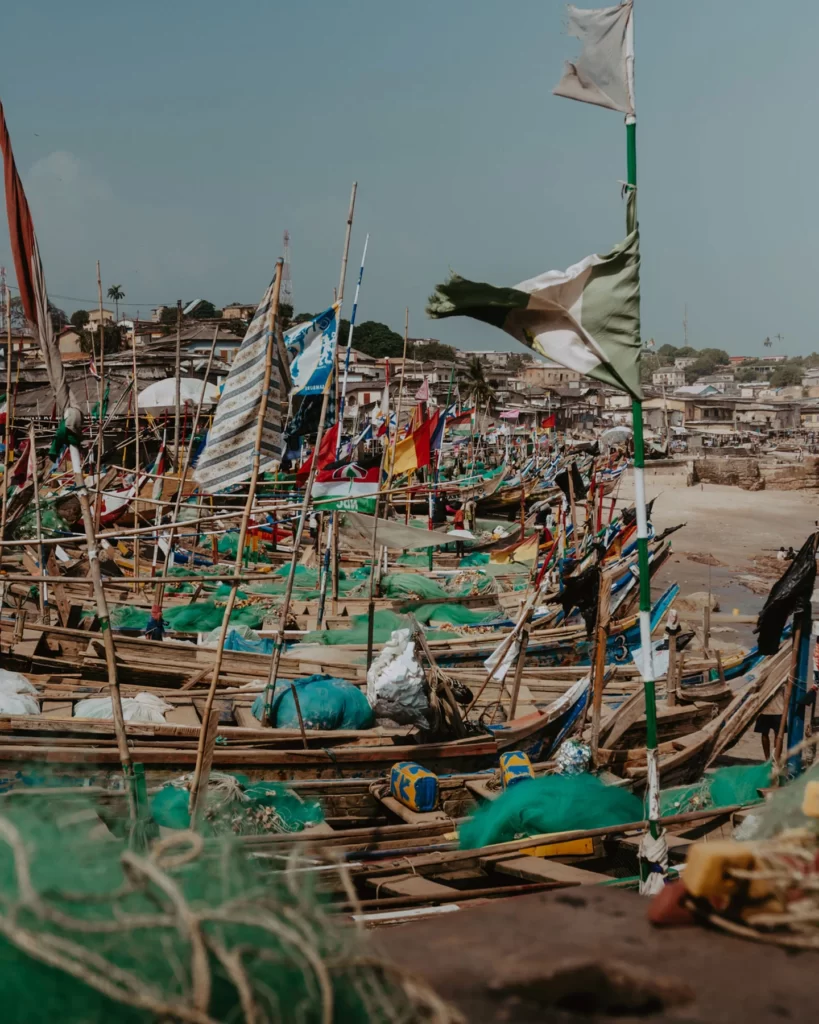Ghana’s Year of Return in 2019 commemorated the 400th anniversary of the arrival of the first enslaved Africans in America. It was also the year in which Ghana’s President, Nana Akufo-Addo, invited all people of African descent to return to the continent, specifically Ghana, to rethink their identity and reclaim their roots.
Ghana’s Year of Return in 2019 became a global phenomenon, with over 500,000 diasporans answering the call. Africans from other parts of the world have continued to flock to Ghana in search of community, culture, opportunity, and history. Some have taken citizenship and established themselves in the West African country, trading Western conveniences for a new way of life.

According to Akua Aboagye-Graham, an African entrepreneur advocate, Ghana’s welcoming spirit and peaceful nature will “spark a sense of belonging and pride” in any diasporan who visits.
“Once you’ve seen it, you’ll be a proponent of Africa’s stunning beauty and humble lifestyle,” she says.
Ghana’s Year of Return is one of the continent’s most successful tourism initiatives, inspiring countries such as Nigeria and Uganda to follow suit. But why was President Akufo-Addo’s invitation to return so moving? The answer lies in Cape Coast, a sleepy beachside city with ports that facilitated one of the darkest forced migrations known to man.

The Year of Return: A Celebration of Resilience
If Ghana’s Cape Coast is a place for quiet reflection and somber truths, Accra, the country’s capital, is a place for song and vigor. The Year of Return program brought the city to life with festivals, parties, and performances, attracting a celebrity crowd as well.
Rappers Rick Ross and Ludacris were spotted out and about in Los Angeles in December 2019. Jidenna of Classic Man made an appearance, Major Lazer threw epic beachside parties, and even Beyoncé was said to have made the pilgrimage.
The West African music scene is thriving, and the emerging genre Afrobeats is at the heart of it. Ghana, one of the originators of sound, has become a mecca for musicians looking for inspiration. The Year of Return utilized the nation’s talent to host unprecedented-scale festivals. The following were the major events:
Afrochella
The Ghana-born festival has gained international acclaim as Africa’s answer to Coachella, but it bills itself as much more. Diaspora Calling, its Year of Return theme, highlighted the process of various African cultures transcending borders without losing their heritage.

Essence Full Circle
Essence Full Circle is a travel organization founded by actor Boris Kodjoe and his family with the goal of showing the world the true face of Africa. Its week-long itinerary in Ghana included sightseeing, parties, and discussions about claiming one’s African identity.
Afro Nation
Afro Nation, which originated in Europe, truly made its mark on the festival scene during the Year of Return, with main stage headliners Burna Boy, Shatta Wale, Wiz Kid, 6lack, and Davido.
Pro tip: East Legon, Osu, and Commercial Road are your best bets for a fun night out in Accra. The streets here are lined with bars, clubs, and restaurants that showcase the best of African nightlife, music, and dance.

Forts, castles, and The Door of No Return
People have flocked to Ghana’s Cape Coast for decades to observe, commemorate, and heal generational wounds caused by slavery and oppression. Several slave ports and castles, including Elmina and Cape Coast Castle, can be found on the Cape Coast, where thousands of Africans were forced to flee through The Door of No Return before being shipped off in disease-infested slave ships.
Today, these castles offer tours to educate visitors about the reality of slavery. They’re not for the faint of heart: tour groups are led through museums of shackles and branding irons before entering the dungeons themselves. The hour-long tours are led by Ghanaian historians who detail the torture that their people endured.
Tours can also be profoundly transformative. They conclude by giving visitors affected by slavery the opportunity to return through The Door of No Return, a step that has taken centuries to arrive. Ghana’s Year of Return takes its name from this tradition, encouraging those who have been wronged in the past to seek solace.
Pro tip: Because there is so much to see and do on the Cape Coast, make your visit at least an overnight stay. The Oasis Beach Resort is a five-minute walk from Cape Coast Castle and provides excellent accommodation at reasonable prices.

Business, growth, and Investment in Ghana
According to the World Bank, Africa has seven of the top ten fastest-growing economies. Ghana’s goal with the Year of Return was to generate business and investment as well as to promote the country as a great tourist destination. As an advocate for African entrepreneurship, Aboagye-Graham believes that contributing to and supporting the hospitality, technology, and agriculture sectors are the best ways to invest in Ghana’s rapidly expanding economy.

Getting around in Ghana: Travelling safely
Traveling in a new country can be intimidating, but with Ghana’s extensive minivan and taxi network, ride-sharing, and widespread use of English, getting around is simple and safe.
To hail a taxi, simply wave your hand and contribute two cedis (approximately £0.30) to the pool. As soon as the van is full, small buses known as tro-tros transport passengers from city to city. Tro-tro stations are bustling with activity, with salespeople, drivers, and food vendors all competing for your attention.
Ride-sharing apps such as Uber have also entered the market, with attentive drivers waiting for pin drops. The cost is comparable to that of a taxi, and they arrive directly with the option of credit card or cash payment. Although the language is not an impediment to providing directions, with so few street names, it is prudent to memorize nearby landmarks as they are the simplest way to communicate with the driver.


